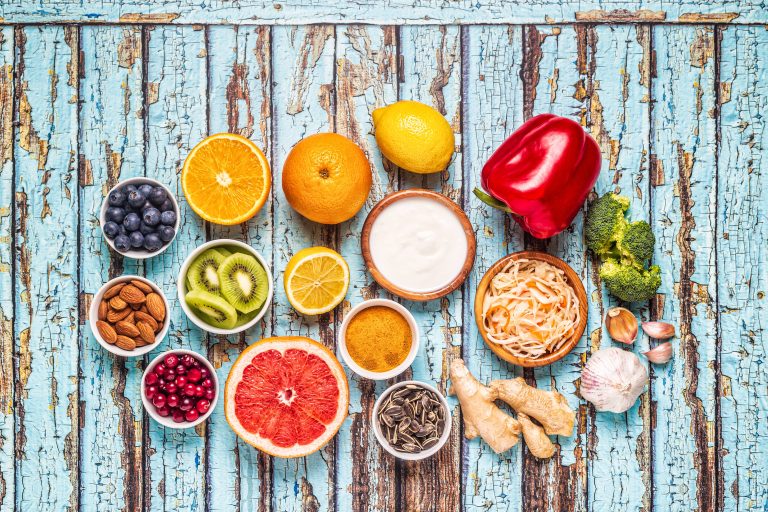
In the intricate dance of human health, hormones play a pivotal role, acting as the body’s chemical messengers. They regulate everything from metabolism and mood to growth and reproductive health. However, the balance of these hormones can be easily disrupted by various factors, including diet. Understanding the relationship between what we eat and our hormonal health is crucial for maintaining overall well-being. In this blog post, we will explore how diet influences hormonal balance and provide practical tips for achieving hormonal harmony through nutrition.
Understanding Hormones and Their Functions
Hormones are produced by glands in the endocrine system and released into the bloodstream, where they travel to tissues and organs to regulate various bodily functions. Key hormones include insulin, cortisol, estrogen, testosterone, and thyroid hormones, each with specific roles:
– Insulin: Regulates blood sugar levels and energy storage.
– Cortisol: Known as the stress hormone, it helps the body respond to stress and regulates metabolism.
– Estrogen and Testosterone: Primary sex hormones that influence reproductive health, bone density, and muscle mass.
– Thyroid Hormones: Regulate metabolism, energy levels, and body temperature.
The Impact of Diet on Hormonal Balance
Diet plays a significant role in maintaining hormonal balance. Certain foods can support hormone production and function, while others can disrupt it. Here are some key dietary factors that influence hormonal health:
1. Macronutrient Balance
– Proteins: Essential for hormone production, proteins provide amino acids that are the building blocks of hormones. Including a variety of protein sources such as lean meats, fish, eggs, and plant-based proteins can support hormonal health.
– Fats: Healthy fats are crucial for hormone production, particularly sex hormones like estrogen and testosterone. Incorporate sources of omega-3 fatty acids, such as fatty fish, flaxseeds, and walnuts, as well as monounsaturated fats from avocados and olive oil.
– Carbohydrates: While carbohydrates are an important energy source, the type and amount consumed can affect insulin levels. Opt for complex carbohydrates like whole grains, fruits, and vegetables to maintain stable blood sugar levels.
2. Micronutrients and Hormonal Health
– Vitamins and Minerals: Certain vitamins and minerals are vital for hormone production and function. For example, vitamin D plays a role in insulin regulation and reproductive health, while magnesium supports the production of sex hormones. Ensure a varied diet rich in fruits, vegetables, nuts, and seeds to meet micronutrient needs.
3. The Role of Fiber
– Gut Health and Hormones: A high-fiber diet supports gut health, which is closely linked to hormonal balance. Fiber aids in the elimination of excess hormones and toxins, reducing the risk of hormonal imbalances. Include plenty of whole grains, legumes, fruits, and vegetables in your diet.
Foods to Support Hormonal Balance
Incorporating specific foods into your diet can help promote hormonal harmony:
– Leafy Greens: Rich in magnesium and antioxidants, leafy greens like spinach and kale support hormone production and detoxification.
– Berries: Packed with antioxidants, berries help reduce inflammation and oxidative stress, which can disrupt hormonal balance.
– Nuts and Seeds: Sources of healthy fats and essential nutrients, nuts and seeds like almonds, walnuts, and flaxseeds support hormone production.
– Fermented Foods: Foods like yogurt, kefir, and sauerkraut promote gut health, which is essential for hormone regulation.
– Cruciferous Vegetables: Vegetables like broccoli, cauliflower, and Brussels sprouts contain compounds that support estrogen metabolism.
Lifestyle Factors and Hormonal Health
In addition to diet, lifestyle factors play a crucial role in maintaining hormonal balance:
– Stress Management: Chronic stress can lead to elevated cortisol levels, disrupting hormonal balance. Incorporate stress-reducing practices such as meditation, yoga, or deep breathing exercises into your routine.
– Regular Exercise: Physical activity helps regulate insulin levels, reduce stress, and support overall hormonal health. Aim for a mix of aerobic, strength, and flexibility exercises.
– Adequate Sleep: Quality sleep is essential for hormone regulation. Aim for 7-9 hours of sleep per night and establish a consistent sleep schedule.
Conclusion
Achieving hormonal harmony through diet is a powerful way to support overall health and well-being. By focusing on a balanced diet rich in essential nutrients, managing stress, and maintaining a healthy lifestyle, you can promote optimal hormone function. Remember, small changes in your diet and lifestyle can have a significant impact on your hormonal health, leading to improved energy, mood, and vitality. Embrace the journey to hormonal harmony and unlock the secrets to a healthier, more balanced life.










